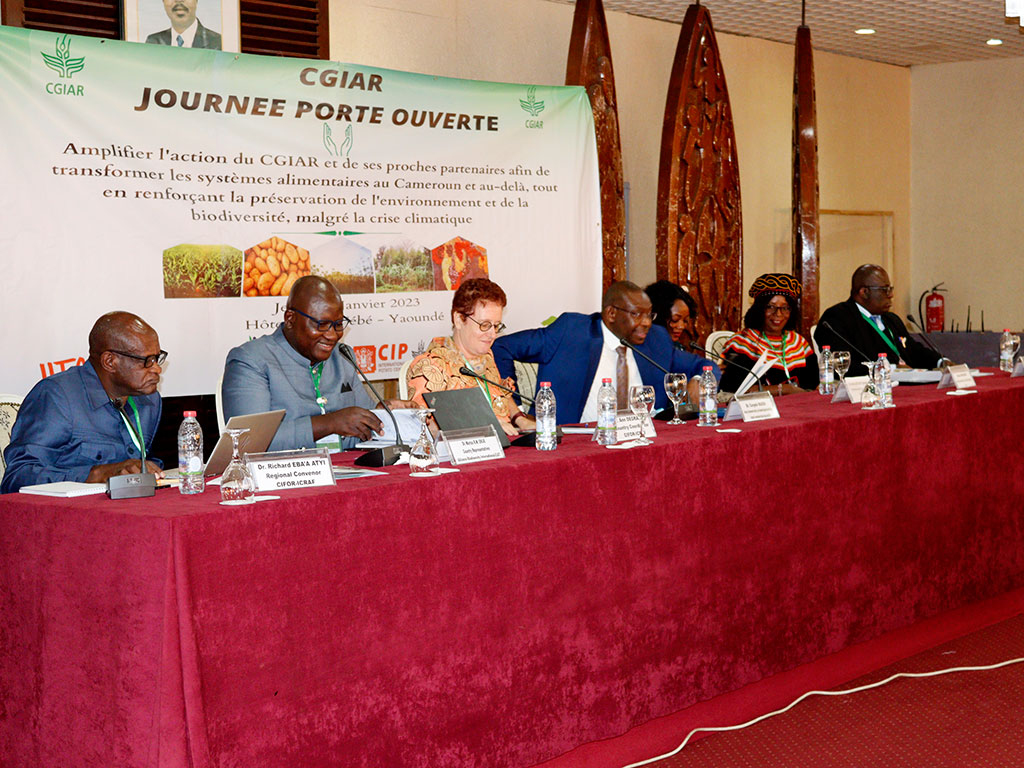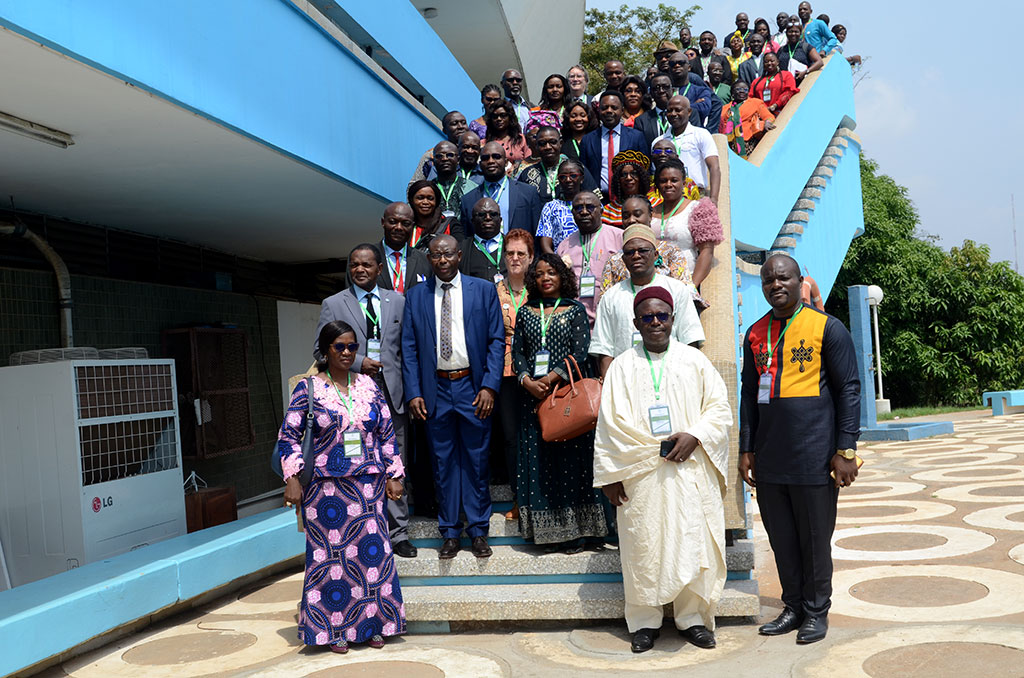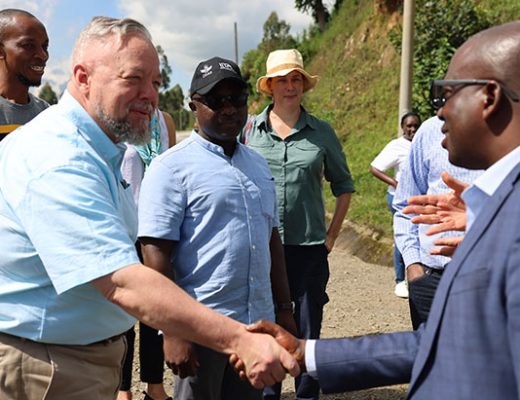The CGIAR Centres in Cameroon reiterate their commitment to a sustainable partnership with the Government of Cameroon.
After several decades in Cameroon, and despite their significant contribution to agricultural research and development in Cameroon, the CGIAR Centres and their achievements are still not well known. The open day organized on January 19th 2023 in Yaoundé aimed at “Amplifying the action of CGIAR and its close partners to transform food systems in Cameroon and beyond while enhancing environmental health and biodiversity, despite the ongoing climate crisis”.
The focus of the event is to strengthen synergies with the various partners and pave the way for strong collaboration in the future. This was the goal of the Group made up of Alliance Bioversity & International Center for Tropical Agriculture (CIAT), Center for International Forestry Research (CIFOR) and International Center for Research in Agroforestry (ICRAF), International Potato Center (CIP) and International Institute of Tropical Agriculture (IITA).

One day focused on dialogue and sharing
Throughout the day, a series of presentations were given on the strategic priorities and activities of CGIAR and each of the centres based in Cameroon: Alliance Bioversity-CIAT, CIFOR-ICRAF, CIP, and IITA. Three panels were organised to reflect on Agrobiodiversity and sustainable agricultural intensification, Sustainable Forest management and landscape restoration, Partnership for impact, and innovative research and innovation funding.
Speaking on behalf of the Ministry of Scientific Research and Innovation (MINRESI), of which she was the representative, Mrs AMINA DJOULDE Christelle acknowledged the importance of partnership and international cooperation in research. She mentioned that “through this initiative, we can make an impact while supporting the Government of Cameroon in the achievement of its SND30 strategy”. She added that “Cameroon is a major research hub in central Africa, but it is not only because of Cameroonian researchers but we also rely on partners for capacity building and we are grateful MINRESI was associated to this event”.
Participants’ interest in the issues discussed was evident in view the very fruitful exchanges. In the long run, the discussions will feed into the proposals that will be made to the Government in order to improve joint actions in the field and the possibilities of strengthening collaboration.

As key recommendations, the audience agreed on the fact that there is a need to develop the country’s engagement framework and identify what is needed to bring other CGs to Cameroon, to develop a joint research programme to address the problems they are facing, and to develop with MINADER and IRAD, a roadmap of priority crops.
In addtion to these, they emphasize capacity building of young researchers in specific domains needed by national institutions, improved communication and interaction between the centres, and putting in place a transparent mechanism to monitor financing in the country, amongst others.




No Comments